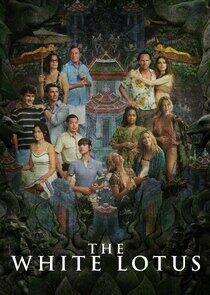Japan 7 Days - Season 3 / Year 2012

Season 3 / Year 2012

Episodes

Interview with astronaut Satoshi Furukawa

Stages of a Life in Kabuki: An interview with actor Kanzaburo Nakamura

Smart City Anticipates Going Global
Trust in nuclear power has been shaken as a result of the problems in Japan, and renewable energy is looking all the more attractive to many people. Smart houses that use only "green" energy fit within that framework.
Building houses, for the most part, has been the business of construction companies. But automakers are leveraging their eco-technology to get involved. At last month's Tokyo Motor Show, Nissan and Toyota displayed their approaches to residences, alongside long-time homebuilder Sekisui.
The city of Toyota, in Aichi Prefecture, has started a pilot project to assess the feasibility of the smart city concept Private and public entities are taking part. About 20 families already live in the model community. The homes get power from large batteries that store energy generated from the sun. Electricity can be shared among the households and facilities such as hospitals and schools.
If the concept works well in actual practice, the building of smart cities may not only be good energy policy, it also may prove to be a smart approach to business in a global market for energy efficiency.
Other News:
- Japan posts first trade deficit in 31 years
- IAEA examines nuclear power plant safety tests
- Tennis player Kei Nishikori reaches quarterfinals at Australian Open

Hardware from Japan Secures Safety around the World

High school dancer reaches peak at Prix de Lausanne

Healthy-Food Means Business

Nature and Technology Combine to Make Better Umbrellas

Evacuation advisories that can reach to all residents

One year after the earthquake that hit eastern Japan, Minamisanriku still struggles to restore itself

Uniqlo envisions a world of fast fashion

Selling japanese anime to the global market
This week's Tokyo International Anime Fair offers overseas buyers an opportunity to choose from among a vast array of Japanese anime to purchase for use in their home markets. The producers of the films, of course, are just as eager to connect with customers from abroad. A declining birthrate and slow economy have dampened domestic sales. Japanese producers also are working to stay a step ahead of filmmakers from around the world who hope to compete with anime of their own. In this climate, JETRO--the government-affiliated Japan External Trade Organization--is offering assistance to Japanese companies in finding potential business partners from the US, Europe, and China.
Other news:
- North Korea announces satellite launch plans;
- Japan considers deploying Patriot Advanced Capability-3 missile in Okinawa;
- Astronaut Akihiko Hoshide to travel to International Space Station in July on Russian Soyuz spacecraft.

Video of damaged reactor container shows difficulty of decommissioning

Stricter standards for cesium in food

Cherry blossoms spread cheer across Japan after a trying year

House sharing creates community

Powerful tornadoes wreak havoc in Japan

Cooperative Venture Gives Electric Cars a New Spin

Rare type of solar eclipse observed across Japan Technology rises to new heights in Tokyo Sky Tree

Japanese planetariums enjoy sky-high business prospects

Facing a summer of limited energy

Pianist Izumi Tateno makes music with one hand

Japanese javelin thrower ready for Olympics in father's homeland

Big expectations for ultra-compact cars

Rediscovering Japanese Cooking
The popularity of Japanese cuisine has been growing around the world, in part because it's low in calories. In Japan itself, however, traditional food is losing favor. Young people, in particular, have become accustomed to a Westernized lifestyle. Many of them lack a familiarity with their own country's dishes. Some lack even the most rudimentary knowledge, such as how to make soup broth.
A restaurant recognized by Michelin three years in a row has started cooking classes to reacquaint Japanese people with their own cuisine. Our report covers the curriculum.
Other News:
- Ohi nuclear power plant moves toward full operation
- Ichiro Ozawa leaves DPJ to form new party

Effects make movies special
Japan's movie industry has earned a reputation for special effects over the years. Godzilla and Gamera, for example, loomed large over the cinematic landscape because they were filmed next to precision miniatures of cities, mountains, and oceans. Nowadays, however, directors often opt for computer graphics. To make sure the long-established approach is not forgotten, a special effects exhibition is giving the public another look at what's possible. Toshio Miike has been involved with movie magic for 40 years. He says he hopes the show will expose visitors to the breadth and depth of what Japanese filmmakers have accomplished in making movies special.

Addicted to Kyoto
Kyoto's Gion Festival is not only one of the oldest public events in Japan; its 1,100 years make it one of the most enduring in the world. The climax of the month-long summer festival is the Yamahoko procession with 32 floats parading through the streets. This time, 24 volunteers from other countries joined the crew responsible for the Funeboko float. The leader of the international group has become a veteran. Shaheed Rupani, from Canada, has participated 11 times, and with each year the bonds strengthen with the community. The number of young people from the area willing to pull the float has been decreasing, So, Rupani is helping create a new chapter in the Gion Festival's long history.

The artistry of Japanese engineering
High-tech and manga may not usually come up in the same sentence, but the illustrated novels of Japan have played a role in the advancement of science. In particular, some robot creators say they started out wanting to make another "Astro Boy," an early manga and anime hero.
As the scientists grew up, their fantasies matured as well. Now, a number of them are trying to convert the come-to-the-aid images of the comic books into real ways of helping actual people.
Other News
Government panel releases final report on Fukushima nuclear plant catastrophe
Osprey transport aircraft arrives at US base in Iwakuni

One of the last survivors recalls the Battle of Okinawa

Chugging toward restoration: Sanriku Railway

Rice Farmers Back in Business

Cool Kids Dig Dance

Special Report: Eighteen Months after the Disaster
Sake Brewery Shows the Way
Anyone in the food industry in Fukushima has had to struggle to do business since the meltdown at the nuclear plant. Radiation fell onto nearby farmland. Consumers, however, have been wary of products coming from anywhere in the prefecture.
Government agencies, as well as agricultural organizations, are conducting tests and allowing only food confirmed safe to reach the market. Even so, Fukushima vegetables and beef sell for about half what they did before March of 2011.
A sake brewery in the city of Nihonmatsu has succeeded in reviving sales to pre-disaster levels. Immediately after the nuclear accident, the company sealed its warehouse to prevent outside air from coming in. It also has been carrying out its own checks for radiation. The brewery is confident enough of its products to be promoting their safety in English and Dutch as well as Japanese.
Struggle to Restore Medical Services
A lack of medical services is further complicating the lives of people still suffering from the earthquake and tsunami. Residents of the town of Minamisanriku, for example, lost all of their medical institutions: one hospital and six clinics.
The local government has not yet produced a plan for restoring them. Masafumi Nishizawa, deputy director of the ruined Shizugawa Public Hospital, has been struggling to fill the gap.
Nishizawa recently rented a facility in the nearby city of Tome to keep medical personnel working and make hospitalization and surgery available. He also has set up a temporary outpatient clinic in Minamisanriku. Because of a shortage of physicians, he works both day and night shifts.
Other news:
- Japanese government purchases Senkaku Islands from private owner.
- Okinawa residents protest deployment of US Osprey military transport aircraft.

Side by Side

Nuclear-Themed Artworks

Small Firms Show They're the Tops

Buddhist priests expand outreach

Struggling to Reduce Radiation

Bento: Good things in small packages

Brain Training: Therapy for Now and Later

World-Class Japanese Android Technology

Izumo, the birthplace of legends, celebrates Japan's oldest history book

Internees' Artwork Displays Dignity

On-Line Connections Encourage Young Voters

Japanese figurines obtain international stature

Decontamination by Bioethanol
Discarded material such as weeds and paper scraps may have a role to play in decontaminating radiation-contaminated areas of Japan. An experiment is being conducted in the village of Iitate to see whether bioethanol, produced from those materials, can be effective. Working with Gifu University, a company by the name of "Contig-i" has succeeded in producing bioethanol from disused articles at half the usual cost. They developed an enzyme that can turn out several times the conventional quantity of ethanol, making large-scale plants unnecessary. Developing countries are looking to the technology as a source of raw material for fuel cells. Other news: - North Korea launches missile. - Active fault suspected at Tsuruga nuclear power plant. - Shinya Yamanaka receives Nobel Prize at ceremony.

New Leadership, Now What?
Japanese voters gave the Liberal Democratic Party and its partner, the New Komeito party, more than two-thirds of seats in the Lower House election. The supermajority will allow them to override bills that are rejected by the Upper House. As a result, the new administration will be able to have its way in enacting laws it expects to end deflation. Other matters will also demand its attention, including foreign affairs and national security. The LDP has said where it wants to go. It now will have to show that its policies will get there. Guest: University of Tokyo Professor Kiichi Fujiwara Other news: BOJ holds first policy meeting after general election. New Tokyo Governor takes office. Experts think northern Japan nuclear plant may be on active faults.
Recently Updated Shows

MobLand
With the most powerful clients in Europe, MobLand will see family fortunes and reputations at risk, odd alliances unfold, and betrayal around every corner; and while the family might be London's most elite fixers today, the nature of their business means there is no guarantee what's in store tomorrow.
MobLand follows two generations of gangsters, the businesses they run, the complex relationships they weave and the man they call upon to fix their problem.

Daredevil: Born Again
Matt Murdock finds himself on a collision course with Wilson Fisk when their past identities begin to emerge.

The Studio
As movies struggle to stay alive and relevant, Matt and his core team of infighting executives battle their own insecurities as they wrangle narcissistic artists and craven corporate overlords in the ever-elusive pursuit of making great films. With their power suits masking their never-ending sense of panic, every party, set visit, casting decision, marketing meeting, and award show presents them with an opportunity for glittering success or career-ending catastrophe. As someone who eats, sleeps, and breathes movies, it's the job Matt's been pursuing his whole life, and it may very well destroy him.

